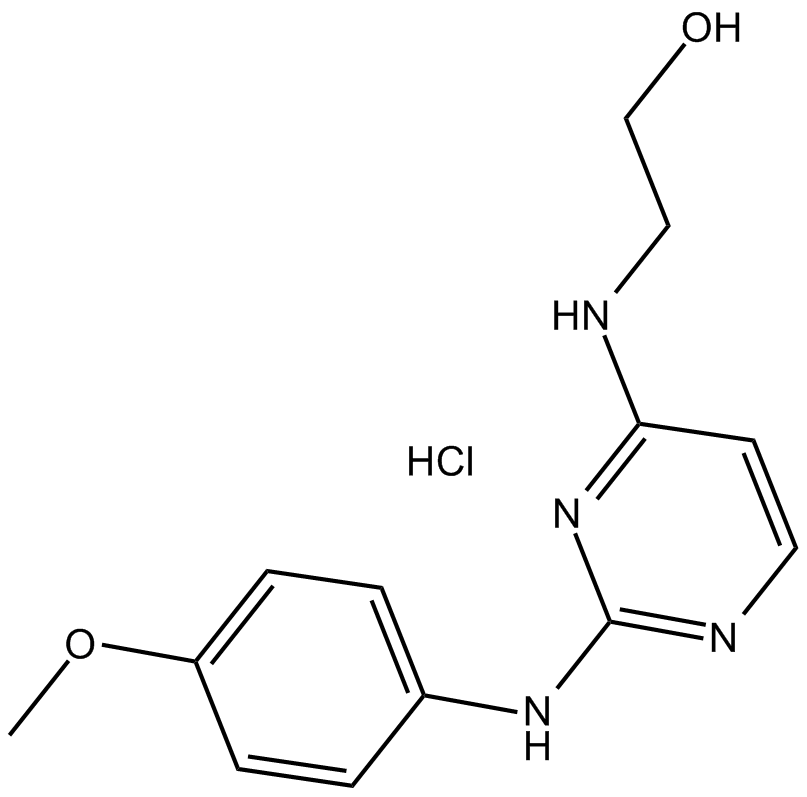Cardiogenol C hydrochloride |
| Catalog No.GC17840 |
Induces differentiation of mouse embryonic stem cells (ESCs) into cardiomyocytes
Products are for research use only. Not for human use. We do not sell to patients.

Cas No.: 1049741-55-0
Sample solution is provided at 25 µL, 10mM.
Cardiogenol C hydrochloride is a cell-permeable pyrimidine compound which potently induces the differentiation of ESCs into cardiomyocytes (EC50= 100 nM).IC50 value: 100 nM (EC50)Target:in vitro: Cardiogenol C hydrochloride is a cardiomyogenesis inducer in embryonic stem cells. Cardiogenol C induces the differentiation of myosin heavy chain-positive cardiomyocytes from embryonic stem cells with an EC50 value of 0.1 μM; about 90% of embryonic stem cells treated with 0.25 μM of Cardiogenol C express the cardiac muscle cell specific transcription factors GATA-4, MEF2, and Nkx2.5 and display the characteristic beating behavior of differentiated cardiomyocytes. Cardiogenol C (a diaminopyrimidine) induces cardiac differentiation in P19 and in P19Cl6 cells. [1] Cardiogenol C could activate Wnt/β-catenin signaling to induce cardiogenesis. Cardiogenol C-treatment significantly decreased HBPCs proliferation. Cardiogenol C was able to induce HBPCs to transdifferentiate into cardiomyocyte-like cells.[2]
References:
[1]. Jasmin, et al. Chemical induction of cardiac differentiation in p19 embryonal carcinoma stem cells. Stem Cells Dev. 2010 Mar;19(3):403-412.
[2]. Yau WW, et al. Cardiogenol C can induce Mouse Hair Bulge Progenitor Cells to Transdifferentiate into Cardiomyocyte-like Cells. Proteome Sci. 2011 Jan 19;9(1):3.
Average Rating: 5 (Based on Reviews and 10 reference(s) in Google Scholar.)
GLPBIO products are for RESEARCH USE ONLY. Please make sure your review or question is research based.
Required fields are marked with *




















